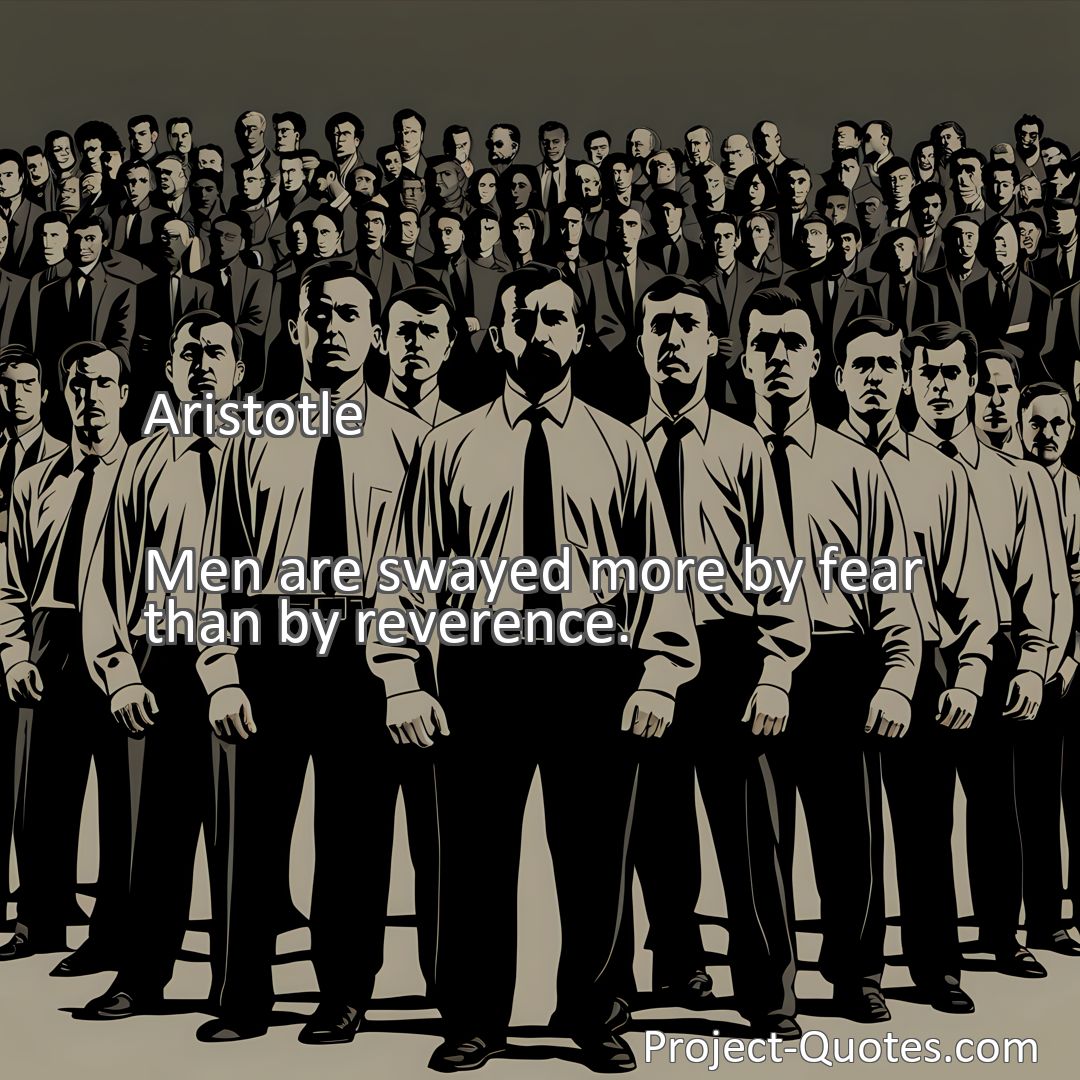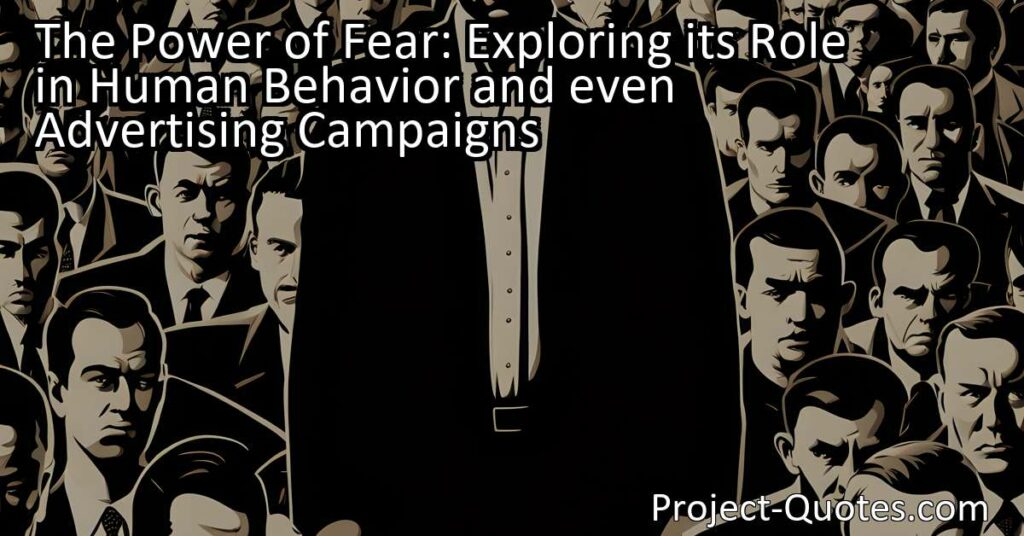Men are swayed more by fear than by reverence.
Aristotle
The Power of Fear: Exploring its Role in Human Behavior and even Advertising Campaigns Fear has been deeply ingrained in human behavior, serving as a primal instinct for survival and a tool of control. Throughout history, fear has been effectively used in advertising campaigns to sway public opinion and influence behavior. However, alongside fear, reverence also plays a significant role in guiding human behavior and inspiring positive change. It is important to recognize the interplay between fear and reverence to navigate life with courage, empathy, and a commitment to our highest values, even in advertising campaigns.
Table of Contents
Meaning of Quote – Men are swayed more by fear than by reverence.
Fear versus reverence is a timeless debate that has captivated philosophers and scholars throughout history. Aristotle, the renowned Greek philosopher, once stated, “Men are swayed more by fear than by reverence.” In this profound quote, Aristotle reveals an insightful observation about human nature and the powerful role that fear plays in shaping our thoughts, actions, and beliefs. While Aristotle’s quote may seem simple at first glance, its implications are far-reaching and warrant further exploration.
Fear has long been recognized as a primal instinct that drives human behavior. From our earliest ancestors to modern-day society, fear has served as a necessary survival mechanism, alerting us to potential dangers and threats. It is ingrained deep within our psyche, capable of both paralyzing us into inaction and propelling us toward change. Throughout history, fear has been effectively utilized as a tool of control and manipulation by those in positions of power. Political leaders, religious institutions, and even advertising campaigns often employ fear tactics to sway public opinion and influence behavior.
On the other hand, reverence is a concept closely associated with admiration, respect, and awe. Reverence stems from acknowledging and valuing someone or something’s superiority, whether it be a deity, a leader, or a timeless symbol. While fear and reverence may appear to be contradictory forces, they are not mutually exclusive. Oftentimes, fear can be a catalyst for reverence, as individuals may hold a deep respect for powerful entities capable of inspiring fear. However, Aristotle asserts that fear holds a more dominant sway over men compared to reverence.
Examining Aristotle’s claim in the context of history, we can identify countless instances where fear has played a prominent role in shaping human behavior. Throughout ancient history, the concept of the divine retribution instilled fear in the hearts of individuals, serving as a deterrent from committing immoral acts. In the Middle Ages, during the infamous Spanish Inquisition, fear was weaponized to suppress dissent and enforce religious orthodoxy. Furthermore, in more recent times, the rise of totalitarian regimes, such as Nazi Germany and Stalinist Russia, relied heavily on fear to maintain power and control over their respective populations.
In addition to external influences, fear also manifests within individuals on a personal level. Our fears can often dictate the choices we make in life, influencing everything from our career paths to our relationships. Fear of failure, rejection, or the unknown can be paralyzing, preventing individuals from pursuing their dreams and embracing new experiences. It can create a self-imposed prison, limiting personal growth and hindering the ability to reach our full potential.
Nevertheless, it is important to acknowledge that fear does not solely govern human behavior. Reverence, too, possesses significant influence over individuals and societies. When someone or something earns our reverence, it sparks a genuine admiration and respect that can manifest in positive ways. Acts of courage, selflessness, and sacrifice are often inspired by reverence for principles, leaders, or causes. Whether it is reverence for justice, love, or an inspirational figure, this internal guiding force can inspire people to make positive changes in their lives and in society as a whole.
While fear may have a more immediate and tangible impact on our actions, it is important to recognize the value of cultivating reverence alongside it. Reverence encourages us to strive for higher ideals, to treat others with respect, and to approach the world with humility. It allows us to appreciate the beauty and complexity of the natural world, the achievements of human civilization, and the potential to make a positive impact on others.
In conclusion, Aristotle’s quote, “Men are swayed more by fear than by reverence,” presents a thought-provoking observation about the influential forces that shape our behavior. Fear, deeply rooted in our evolutionary history, often holds significant power over our thoughts and actions. It can be used as a tool of control and manipulation, both on a societal and individual level. However, reverence, rooted in admiration and respect, also plays a vital role in guiding human behavior and inspiring positive change. By recognizing the interplay between fear and reverence, we can strive for a balance that allows us to navigate the challenges of life with courage, empathy, and a commitment to our highest values.
I hope this quote inspired image brings you hope and peace. Share it with someone who needs it today!


